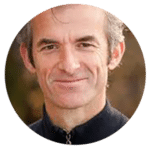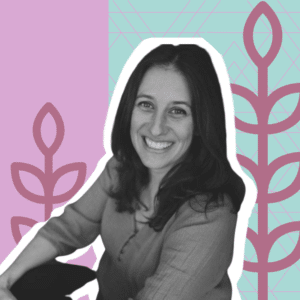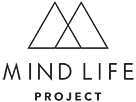Month Seven
Month Seven
MONTH SEVEN
An interview with Mark Coleman
Mindfulness for innovation and creativity
Listen to the audio here:
[powerpress url=”https://s3-ap-southeast-2.amazonaws.com/mindlifeproject/MLP+members/MLP+members+video+mp3/MLP+-+Mark+Coleman+audio.mp3″]
download audio Download TranscriptWelcome to MONTH SEVEN
“One of my mottos in life is that if you don’t create space, then nothing can emerge.”
~ Mark Coleman
As you continue to regularly practice mindfulness, you’ll discover over time that it offers a powerful ingredient to expand your creativity, which is an essential ingredient to happiness and flourishing.
Over the past few years I’ve been on a mission of unlearning and relearning how to be comfortable with taking more risks in order to develop my creativity .
Going to medical school taught me a lot of worthwhile things. However, it was also a path that seemed to gradually extinguish my creative and entrepreneurial tendencies. We were learning to accurately diagnose so that we could precisely treat and save lives. Mistakes could be detrimental and there wasn’t a lot of room for creativity.
As I travelled deeper down the path of specialisation into Psychiatry, I felt myself becoming more and more constricted by the rules, both spoken and unspoken and less able to take risks and innovate within the system. There was as sense of having my creativity stifled by some invisible force.
I wasn’t alone. Many of my doctor friends were talented musicians, artists and writers who were living double lives, barely managing to keep their creativity alive in between the demanding hours of medical work. Writer and social researcher Brene Brown warns about the toxicity of stifled creativity:
Unexpressed creativity is not benign, it turns to grief and judgement.
Whether it’s a desire to play music, paint, find creative solutions at work or come up with more creative ways of parenting or being in relationship, meditation is a powerful practice that can help us overcome the barriers to our highest creative potential.
When we’re feeling rushed and stressed out, we lose touch with our creativity and with those things that nourish our soul. Taking time to be still and listen to what we need supports us to sense what is missing in our lives and make small adjustments that can often have a big impact on how we feel.
The loss of connection to our soul is a key contributor to so many of our psychological ailments. When patients arrived at my psychiatry practice, depressed or anxious, apart from reviewing their medication I adopted the ancient wisdom that many shamanic societies understood. If you came to a shaman or medicine person complaining of being disheartened, dispirited, or depressed, they would ask one of four questions.
- When did you stop dancing?
- When did you stop singing?
- When did you stop being enchanted by stories?
- When did you stop finding comfort in the sweet territory of silence?
Mindful reflection:
Take a moment after your meditation today to reflect on these questions and journal your responses.
- Where in your life is your creativity being expressed?
- Where in your life is creativity not being expressed?
- What creative longings do you have that you may have not acted upon because of fear?
- What are the inner and outer obstacles that prevent you from experiencing your creativity?
- What is one thing you could do this week at work or at home to nurture and encourage your creativity?
I hope you enjoy the interview with the very poetic, and wise Mark Coleman.
Share your biggest takeaway from the video and any reflections or thoughts you have from the questions above in the Facebook group.
In this video you’ll learn:
- Mindfulness and how it can support creativity, innovation and greater risk taking
- The importance of being aware of the attitude you bring to mindfulness practice
- How mindfulness supports greater resilience
- How mindfulness can help us manage negative thought patterns
About Mark Coleman

Mark Coleman, M.A., founder of Awake in the Wild and The Mindfulness Institute, is an internationally recognised mindfulness facilitator who has guided students on five continents to find greater peace and fulfilment through nature-based mindfulness practice and mindfulness retreats. The author of Awake in the Wild, Mark is also a corporate consultant, individual counsellor, poet, wilderness guide, and outdoor adventurer.

Our upcoming LIVE CALL
Date: WEDNESDAY 23 november 2022
Time: 8:30pm AEST
Join our live guided online meditation with Dr. Elise Bialylew, along with an interactive Q&A session.
Join the session on Zoom here: https://us02web.zoom.us/j/89642795363
JOIN HEREBOOK OF THE MONTH
 As we bring the year to a close our final book for the Mind Life Project book club is Burnout: Solve Your Stress Cycle, by Emily Nagoski and Amelia Nagoski.
As we bring the year to a close our final book for the Mind Life Project book club is Burnout: Solve Your Stress Cycle, by Emily Nagoski and Amelia Nagoski.
This groundbreaking book explains why women experience burnout differently than men – and provides a simple, science based plan to help women minimize stress, manage emotions and live a more joyful life.
The gap between what it’s really like to be a woman and what people expect women to be is a primary cause of burnout, because we exhaust ourselves trying to close the space between the two. How can you ‘love your body’ when everything around you tells you you’re inadequate? How do you ‘lean in’ at work when you’re already giving 110% and aren’t recognized for it? How can you live happily and healthily in a world that is constantly telling you you’re too fat, too needy, too noisy and too selfish? Sisters Emily Nagoski, Ph.D., the bestselling author of Come as You Are, and Amelia Nagoski, DMA, are here to help end the cycle of overwhelm and exhaustion, and confront the obstacles that stand between women and well-being.
You can keep track of your learnings from the book through this MLP book club reflection guide. As you take notes feel free to share them in the Facebook group as a way of integrating your learning and having discussions with others in the group. Remember to use the hashtag #bookclub.
PURCHASE THEBOOK Download the bookclub
reflection guide here
[accessally_has_any_tag tag_id=’360′ comment=’MLP_Base_Access’][fl_builder_insert_layout slug=”mlp-aa-row”][/accessally_has_any_tag]
